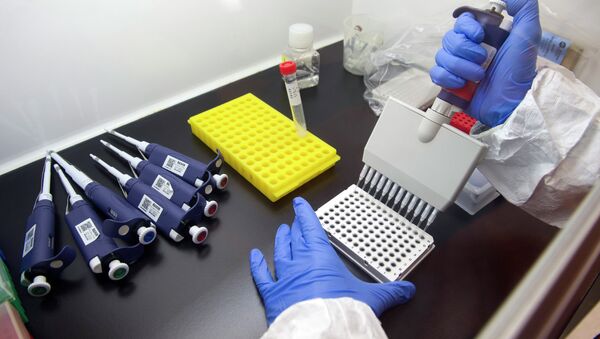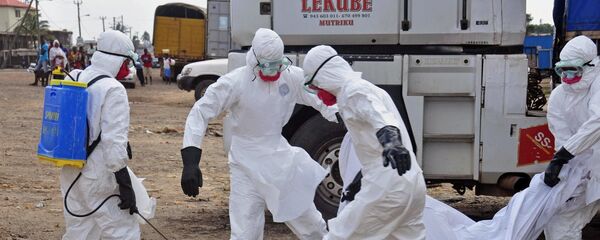According to The Guardian, only one of the three new suspected cases, which were declared on Saturday evening, took place in Mbandaka, which gives hope that the vaccination may help contain the spread of the deadly disease.
The World Health Organization (WHO) has delivered over 7,500 doses of vaccine against the virus to the Democratic Republic of Congo (DR Congo), the WHO said in a press release on Monday.
A total of 46 EVD cases and 26 EVD-related deaths have been reported in DR Congo between April 4 and May 17, according to the WHO figures.
"Health workers operating in affected areas are being vaccinated today and community outreach has started to prepare for the ring vaccination. More than 7,500 doses of the rVSV-ZEBOV Ebola vaccine have been deployed to the Democratic Republic of the Congo to conduct vaccination in the northwestern Equator Province," the press release said.
The ring vaccination is being carried out by the country's Health Ministry together with the WHO, Medecins Sans Frontieres (MSF or Doctors Without Borders), the UN Children’s Fund (UNICEF) and others. It targets all the contacts and contacts of contacts of individuals with confirmed EVD cases. Thus, over 600 individuals eligible for vaccination have been identified so far.
"Vaccination will be key to controlling this outbreak… We are grateful for the support of our partners in making this possible," WHO Director-General Dr Tedros Adhanom Ghebreyesus was quoted as saying in the press release.
On Saturday, the DRC government convened a meeting of the Council of Ministers to decide on emergency measures in response to the ongoing outbreak of the Ebola virus disease (EVD). The council agreed to increase the response funding to over $4 million and to provide free health care in the affected health zones.
READ MORE: CDC Employee Who Once Researched Ebola and Zika Falls Off Radar
The Ebola virus is transmitted to humans from animals and is estimated by the WHO to have a 50-percent fatality rate. The disease killed over 11,000 people in West Africa between 2014 and 2015.
Confirmation of urban #Ebola in #DRC is a game changer in this outbreak — the challenge just got much much tougher https://t.co/UFA3zBh4by @WHOAFRO
— Peter Salama (@PeteSalama) May 17, 2018



